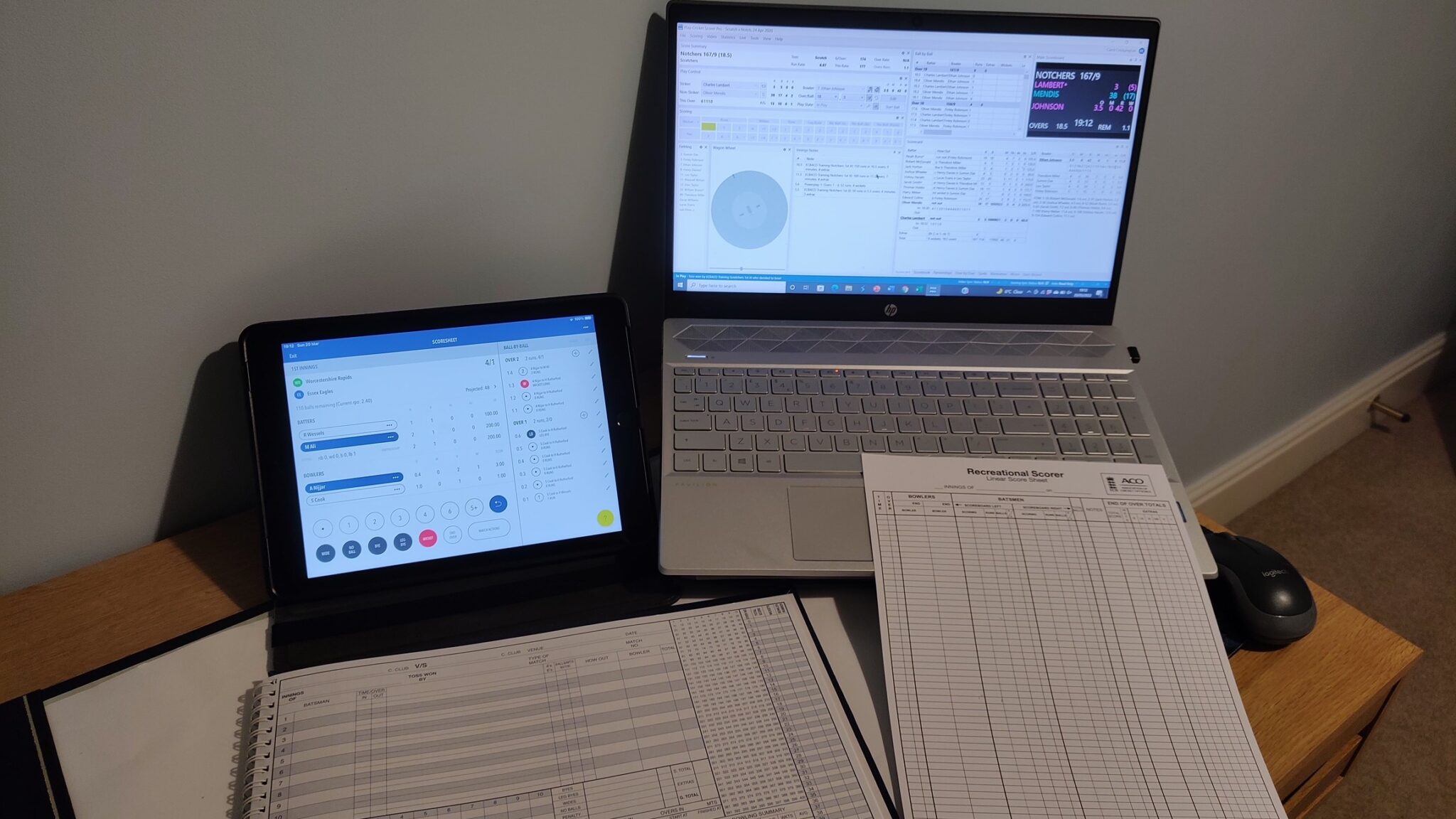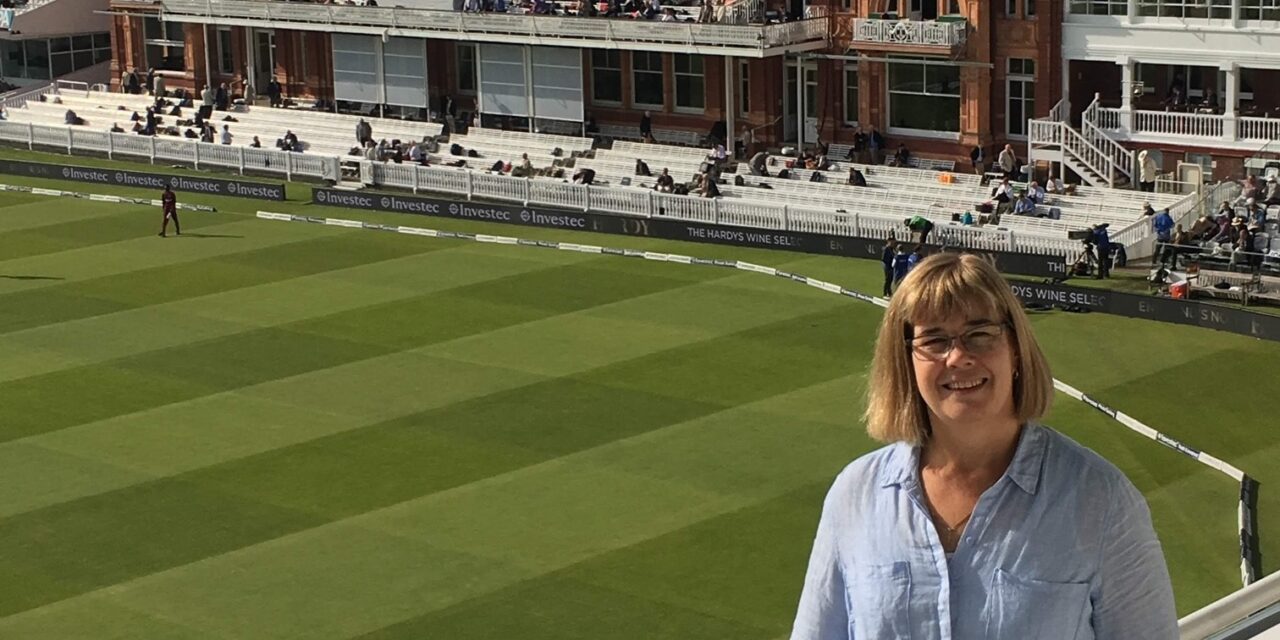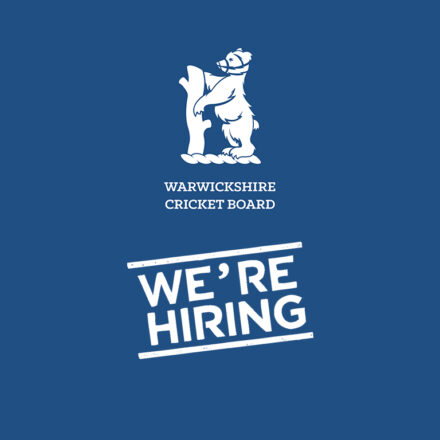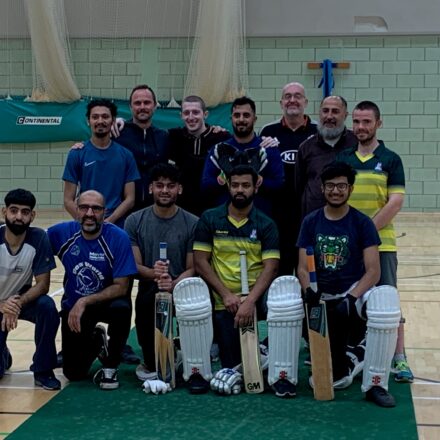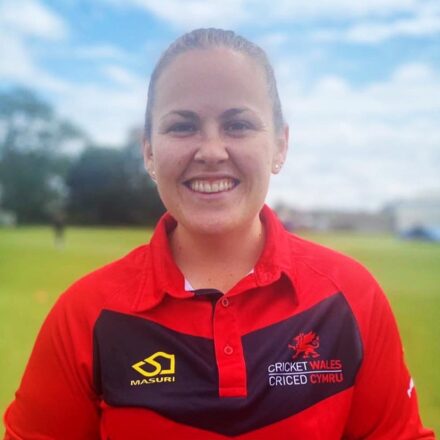Carol Credgington is the new West Midlands Regional Scoring Officer, a role she shares with colleague Clair Eccleston. Carol and Clair are members of the ECB’s Association of Cricket Officials (ACO), which includes scorers and umpires. Carol has also been scorer for Leamington CC for 10 years, starting with the 3rd XI and more recently for the 1st XI.
In our latest WCB Q&A session, Carol discusses the importance of the scorer in recreational cricket, how recent circumstances have affected scorers, and her role in providing support and training to scorers in the West Midlands. In particular, Carol addresses the issue of reconnecting and rebuilding the scoring community after the pandemic, plus succession planning to bring the next generation of scorers through in the game.
How would you describe the importance of the scorer’s role in recreational cricket?
Many games in recreational cricket are tight and competitive, so having the score recorded correctly is very important, regardless of whether it is done manually or electronically. In situations where there is no scorer, and the scorebook is passed around from player to player, how can people be sure it is correct? Having someone keeping score at a game is as important as having an umpire. That could be someone like me, who hasn’t played the game, or a player who can also score.
Cricket players put a lot of effort into developing their playing skills but scoring and umpiring are also important skills to learn. At some stage, most players will be asked to score or umpire a game and it is worth them investing in learning these skills to support their team, their club and cricket generally.
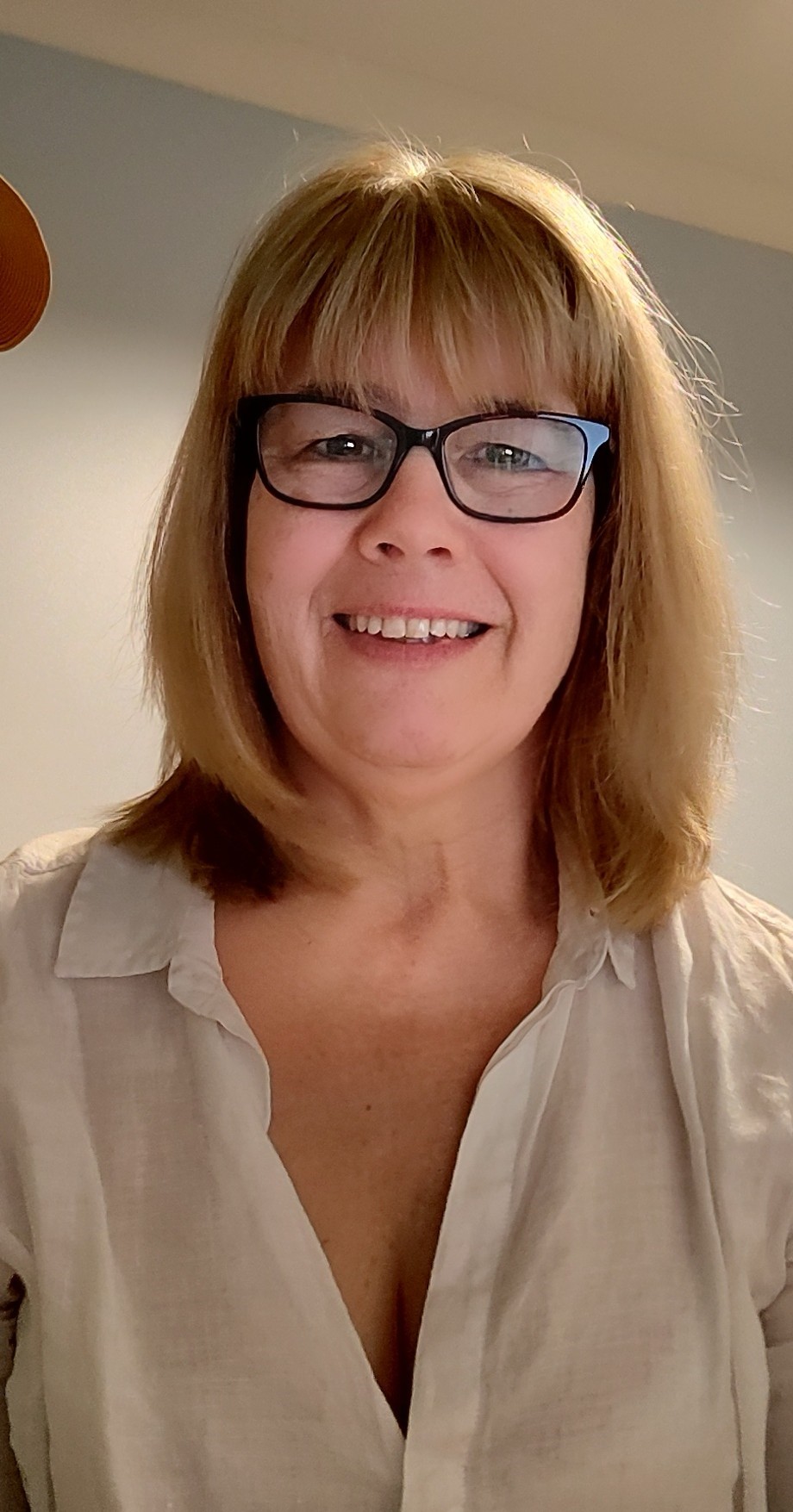
What recent changes have affected scoring in recreational cricket?
I think the changes fall into two broad categories – those due to developments in technology and those resulting from the pandemic.
- Technology
There has been a general shift towards more electronic scoring, using laptops, phones, tablets etc. This gives much more flexibility, but not everyone is comfortable with it. For someone who has been using a scorebook for many years, they might need some support to get to grips with electronic scoring. Then, once they’ve got the hang of it, they are often off and away. Our scorers’ courses can support those wanting to make that transition.
Technology provides so many more opportunities, for example live streaming and analysis, both of which scorers often get involved with. It is amazing what analytical tools are available through electronic scoring. Uploading scores to Play Cricket can also be done so much more easily, and the information is then there for coaches to look at players’ performances.
- Covid
The pandemic has had a significant impact on the scoring community. Many scorers have left the game, having reviewed their commitments during the lockdowns. Part of my role now, with Clair and the County Scorers’ Officers, is to help attract new scorers into the game and provide the resources, training, and a community for those who want to develop and even move into the professional game.
During Covid, the ACO was also able to take the opportunity to review and redevelop its training to decide what could be moved online and what training still needed to be done face to face. As a result, there are a number of online resources that new scorers can access through the ECB’s website.
How would you signpost someone who is considering learning how to score?
For anyone considering learning to score, I would suggest getting in contact with the scorer at your local club and sitting down with them at a match to observe how they score. Clubs and players will always welcome new scorers with open arms. For anyone who doesn’t feel confident enough to go along and introduce themselves in that way, they could start by completing the online ‘Introduction to Scoring’ course on the ECB website, which is free. This will enable them to learn the basics at their own pace. Beyond that, anyone can practise scoring themselves, either at a match or in front of the television. You can download a score sheet from the Internet, or a scoring app on your phone, and just start scoring for fun. Once you’ve got some confidence then it will hopefully feel easier going to a club or signing up for an ACO course.
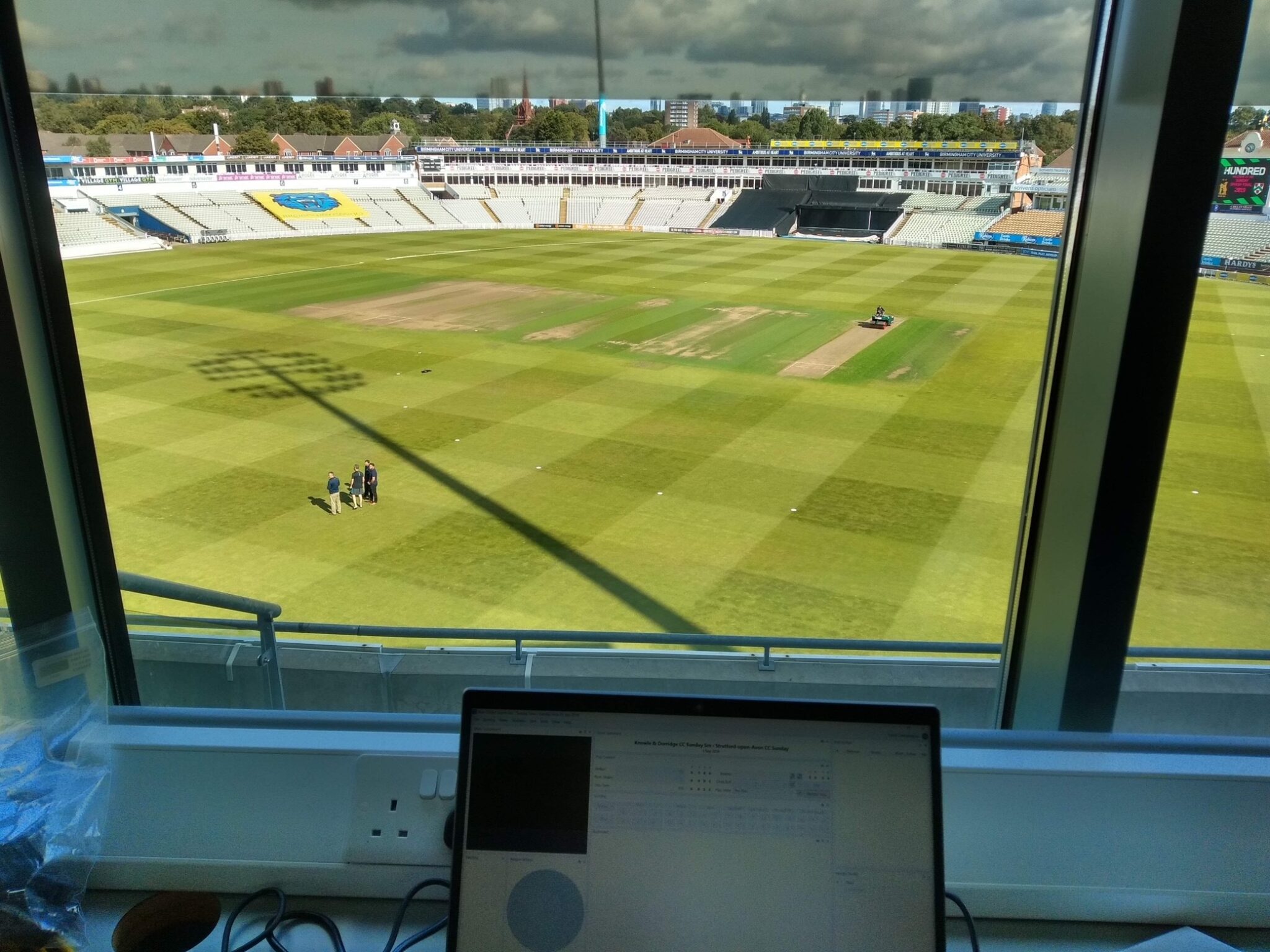
What courses and resources are available for existing scorers to develop their skills further?
It’s certainly not the case that every scorer must complete training, but there are plenty of training opportunities available for those who do want to develop their scoring skills. Some people are happy casually scoring a match for teammates, friends or their children a couple of times a season. Others want to develop, score regularly and maybe even move into the professional game.
Our West Midlands ACO scoring courses tend to run from January to April, so the 2022 courses are coming to an end now. Anyone who is keen to put their name down for a course next year can contact me or Chrissie Phillips (the Warwickshire CSO) and ask to be kept informed of future courses. The progression through the levels of courses is as follows
- Introduction to Scoring – this course will teach the score sheet basics and is useful, for example, to parents wishing to score for their child’s team.
- Club Scorer Course – this is course is aimed at club scorers and covers the laws of the game, accurate scoring and other skills required for scoring at club level. It also provides grounding for scorers to begin scoring matches and build their confidence. They can then request a Professional Discussion with their County Scorers’ Officer to obtain their Level 1 Accreditation.
- Level 2 Course – prepares scorers for the next level of accreditation and is the suggested level to score in the Birmingham Premier League and other top recreational leagues. It gives scorers an understanding of what is expected at this level in terms of interpreting the laws of the game.
- Level 3 Course – this prepares scorers for scoring at the highest levels, at festivals, and for scoring on the Performance database.
All these courses can be booked through the ECB website. Scorers in Warwickshire will also have access to scoring courses in other counties too. Once the basic course has been completed, scorers can register as ACO members. It’s important to remember to tick the box in the privacy section which enables the ACO to send details of further courses.
In addition to the formal qualifications, the ACO also offers voluntary CPD modules which cover the following areas
- Electronic scoring
- Duckworth-Lewis-Stern
- Linear scoring, which is a simpler paper form of scoring done alongside electronic scoring in case of technological failure, for example a laptop that decides to do an update during a match, or a device where the screen just freezes. Having a linear score running alongside the electronic one means there is a backup paper copy available to the scorer, if needed.
I would advise all scorers to keep records once they have attained their accreditation. It is good to keep a record of games you have scored, CPD completed etc. Ultimately, it’s all about learning and developing. Rather than keeping a perfect score sheet for every match, it’s good to consider how you’ve coped with anomalies or when something has gone wrong, in order to keep developing skills.
Tell us about your own journey into scoring at Leamington CC.
I initially got involved in scoring through my children. I used to watch them play and make the teas, but then got dragged into scoring, which I found I really enjoyed. When I started out, it was just good to know the score book in my boys’ matches was correct! After a time, I started scoring for the first team and travelled away with them, so I wasn’t scoring for my boys any longer. It feels good to be part of the team and although I have always volunteered at the club, it makes me feel even more involved as I travel with the first team. Only one of my sons still plays cricket and, as time has gone on, I now dislike scoring when he’s playing. I don’t think he likes it either!
I enjoy the challenge of scoring and the fact I am always learning. There are always situations that occur and make me think “How do I record that?”. Different teams and competitions have different rules so it’s important to keep on top of that.
Clair and I took over as West Midlands Regional Scoring Officers quite recently from Heather Vernon, who is now the National Scoring Officer for the ACO. We work closely with colleagues in counties across the West Midlands, including Chrissie Phillips who is Warwickshire’s Scoring Officer. I enjoy the contact with scorers across the region, which this role provides. As I said previously, our aim is to rebuild the scoring community and plan for the future. There are a couple of specific areas Clair and I are keen to support and develop.
- 14 – 18 year olds who could take advantage of all the excellent resources the ACO provides in both scoring and umpiring. My experience is that young people are incredibly quick at working things out and generally love technology, so scoring will appeal to many young people, whether or not they play cricket.
- Those wanting to get involved in the Women and Girls’ game, which is growing at a fast rate and will require officials too.
What opportunities are there for scorers to progress in the game?
As cricket develops, so does scoring. There are now so many different formats in cricket, each one providing new learning and opportunities for scorers. The skills developed in scoring are useful within and beyond cricket. Scoring skills are similar to those used by sports analysts and, with sports analysis becoming an important part of the game, I would recommend a scoring course to those wanting to pursue that career option.
In the upper echelons of the recreational game and in the professional game, there is renumeration for scorers. Where payment is made, the amount varies from club to club and from organisation to organisation.
Whatever the motivation for becoming a scorer, I can absolutely recommend it to anyone as a rewarding and interesting role to take on. It’s important that we bring the scoring community together and welcome new people into it, as scoring is such an integral part of the game.
*****
Carol Credgington can be contacted by email at [email protected] and Chrissie Phillips can be contacted by email at [email protected] with any enquiries about scoring or ACO courses.
